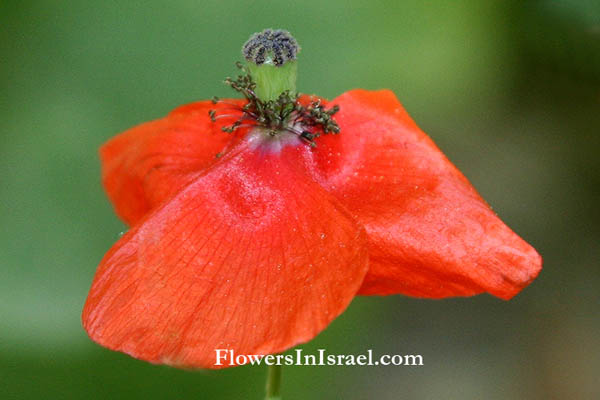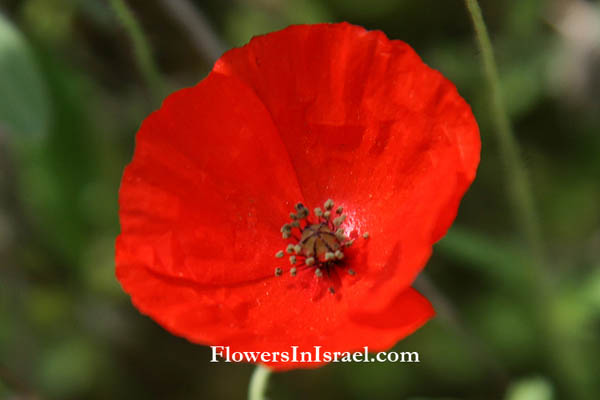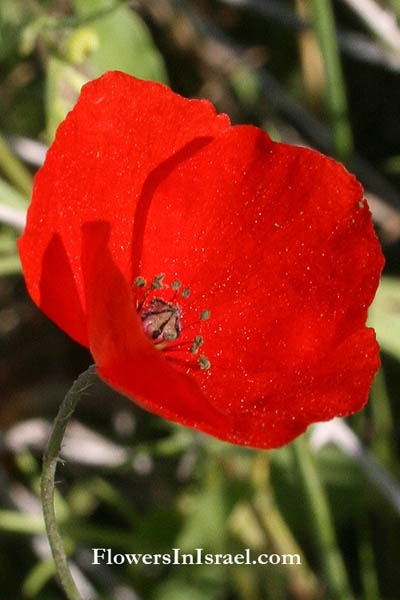Hebrew: פרג נחות, Arabic: الخشخاش المنخفض
| Scientific name: | Papaver humile Fedde | |
| Common name: | Humble Poppy | |
| Hebrew name: | פרג נחות | |
| Arabic name: | الخشخاش المنخفض | |
| Family: | Papaveraceae, פרגיים |

|
| Life form: | Annual | |
| Stems: | 15-40 cm | |
| Leaves: | Alternate, rosette, dissected, dentate or serrate | |
| Inflorescence: | Solitaire | |
| Flowers: | Red, stigmas on a sessile disc at top of ovary | |
| Fruits / pods: | Capsule | |
| Flowering Period: | April, May, June | |
| Habitat: | Shrub-steppes, Desert | |
| Distribution: | Mediterranean Woodlands and Shrublands, Semi-steppe shrublands, Shrub-steppes, Deserts and extreme deserts | |
| Chorotype: | Saharo-Arabian | |
| Summer shedding: | Ephemeral |

Derivation of the botanical name: Papaver, the classical Latin name for the poppy. humile, low, low-growing, humble. Poppy, derived from the Old English popæg and referring to various species of Papaver. The Hebrew name: pereg, פרג (sometimes parag) derives from the Sanskrit word priyangu, meaning "foxtail millet" (or "panic seed".) . It is found in the plural - פרגין - in the Mishna (Sheviit 2:7, Chalah 1:4) and in the Talmud (Rosh Hashana 13b), listed together with other crops that aren't full grains like shumshum שומשום - sesame and orez אורז - rice.
Hybridazation often occurs among Papaver rhoeas P.carmeli, P. humile and P. umbonatum. 
|